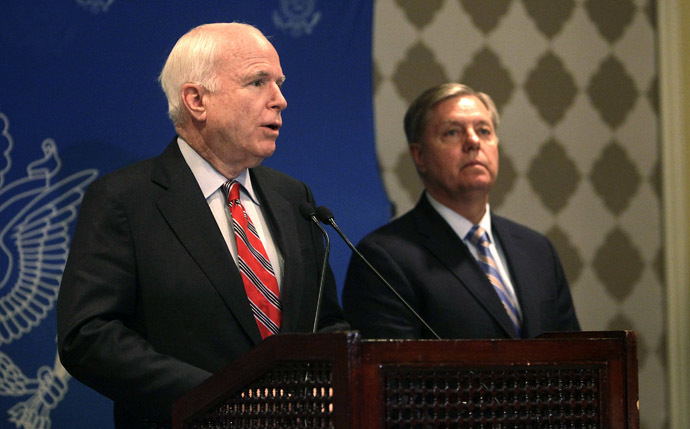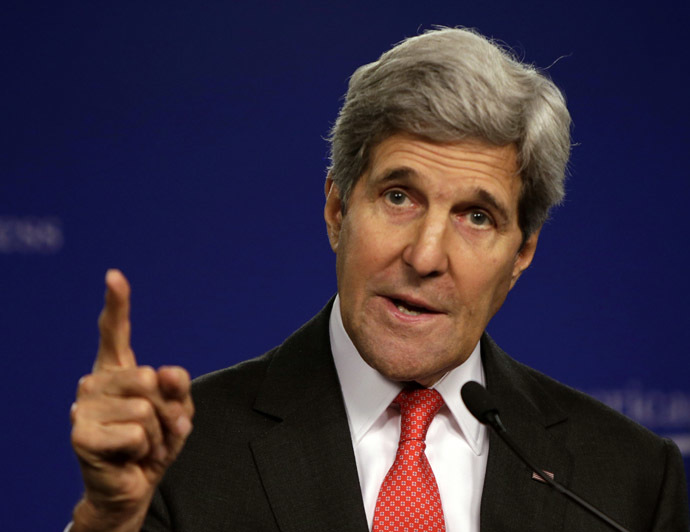Link to video: Gaza: Israeli soldier needs to be unconditionally released, says Obama
Fighting in
Gaza intensified overnight, with reports indicating that Israeli forces were advancing around the southern towns of Khan Younis and Rafah, in what appeared to be an attempt to prevent Hamas from moving a soldier reported to have been captured.
Reports from Rafah, in the south of the Gaza Strip and close to where Second Lieutenant Hadar Goldin is thought to have been taken, indicated heavy civilian casualties from Israeli bombardments. Troops continued to clash with Hamas fighters.
Around 100 people in Rafah have been killed and hundreds more injured in Rafah since fighting restarted after the three hour breakfollowing the collapse of an internationally brokered ceasefire collapsed on Friday morning. At least a dozen have been killed elsewhere in Gaza and scores wounded. Local health officials said the main hospital in Rafah had to be evacuated due tobecause of shelling on Friday afternoon.
In the northern town of Beit Lahiya, however, the Israeli army on Saturday told residents it was safe to return to their homes, as troops were seen withdrawing from the area. It was the first time troops had been seen pulling back since the start of the conflict 26 days ago.
"Messages have been conveyed to residents of the northern Gaza Strip that they may return to the Beit Lahiya area," an army statement said, with a spokeswoman indicating the message had been relayed to authorities in the Palestinian enclave.
It comes amid reports that
Israel has pulled out of negotiations for a new truce, due to take place in Cairo on Saturday.
Around 1,650 Palestinians have been killed and more than 8,000 injured since the conflict started, according to the Gazan health ministry. The UN children's agency Unicef said that at least 296 Palestinian children had been killed, 30% of the civilian casualties. On the Israeli side, 63 soldiers and three civilians have been killed. Unicef said: "The number of child casualties during the last 48 hours may rise as a number of incidents are pending verification."
Air strikes continued in Gaza city overnight, hitting the Islamic University, a private institution associated with Hamas, and other targets, including several mosques. There was bombing in and around the city on Saturday morning.
Israeli troops were reported to have pushed further towards the northern village of Beit Hanoun and Shujai'iya, a neighbourhood east of Gaza city where the IDF say many cross-border tunnels used by Hamas to infiltrate Israel originate.
Early on Saturday, the Hamas military wing said in a statement on its website that it was "not aware until this moment of a missing soldier or his whereabouts or the circumstances of his disappearance". The group said it believed the soldier might have been killed in a clash with Hamas fighters about an hour before the start of the ceasefire. The Israeli military declined comment on the statement.
The US and the UN supported Israeli accounts that Hamas had taken advantage of the 72-hour humanitarian ceasefire to ambush IDF personnel near the entrance to a tunnel on the Egyptian border outside Rafah, on the southern end of the Gaza Strip, killing two soldiers at the same time as seizing Goldin.
Barack Obama said Hamas should be held responsible for the collapse of the ceasefire and demanded that it immediately release Goldin. He insisted the US was doing everything possible to prevent the deaths of Palestinian civilians, which he called "heartbreaking".
Obama strongly condemned the Palestinian side for failing to follow through on the truce. "If they are serious about trying to resolve this situation, that soldier needs to be unconditionally released as soon as possible," Obama told reporters at the White House.
He struck a pessimistic note about the prospects of piecing together another ceasefire after Friday's return to violence, an objective he said the US would continue to pursue, acknowledging that ceasing hostilities in the current climate would be challenging.
He reaffirmed his support for Israel's military attempts to defend itself from Hamas rocket attacks and cross-border assaults using tunnels. "At the same time we've also been clear that innocent civilians in Gaza, caught in the crossfire, have to weigh on our conscience, and we have to do more to protect them," he said.
The president said it was hard to reconcile support for Israel's self-defence and concern for the death of innocent Palestinians: "I want to see everything possible done to make sure that Palestinian civilians are not being killed. It is heartbreaking to see what is happening."
The UN secretary general, Ban Ki-moon, said the Hamas attack was "likely to have very serious consequences for the people of Gaza, Israel and beyond". Through his spokesman, Stéphane Dujarric, Ban said: "Such moves call into question the credibility of Hamas's assurances to the United Nations."
The bombardment of Rafah appeared to reflect what the IDF called the "Hannibal directive", in which it responds to any capture of a soldier with heavy fire aimed at stopping the captors leaving the scene, even if it risks injury to the Israeli prisoner.
Israel's prime minister, Binyamin Netanyahu, told the US secretary of state, John Kerry, in a phone call: "Israel will take all necessary steps against those who call for our destruction and perpetrate terrorism against our citizens."
Kerry said: "Hamas, which has security control over the Gaza Strip, must immediately and unconditionally release the missing Israeli soldier. The international community must now redouble its efforts to end the tunnel and rocket attacks by Hamas terrorists on Israel."
Britain is providing a further £3m to support a rapid response by aid workers in Gaza to what the international development secretary, Justine Greening, described as "nothing short of a humanitarian catastrophe".














